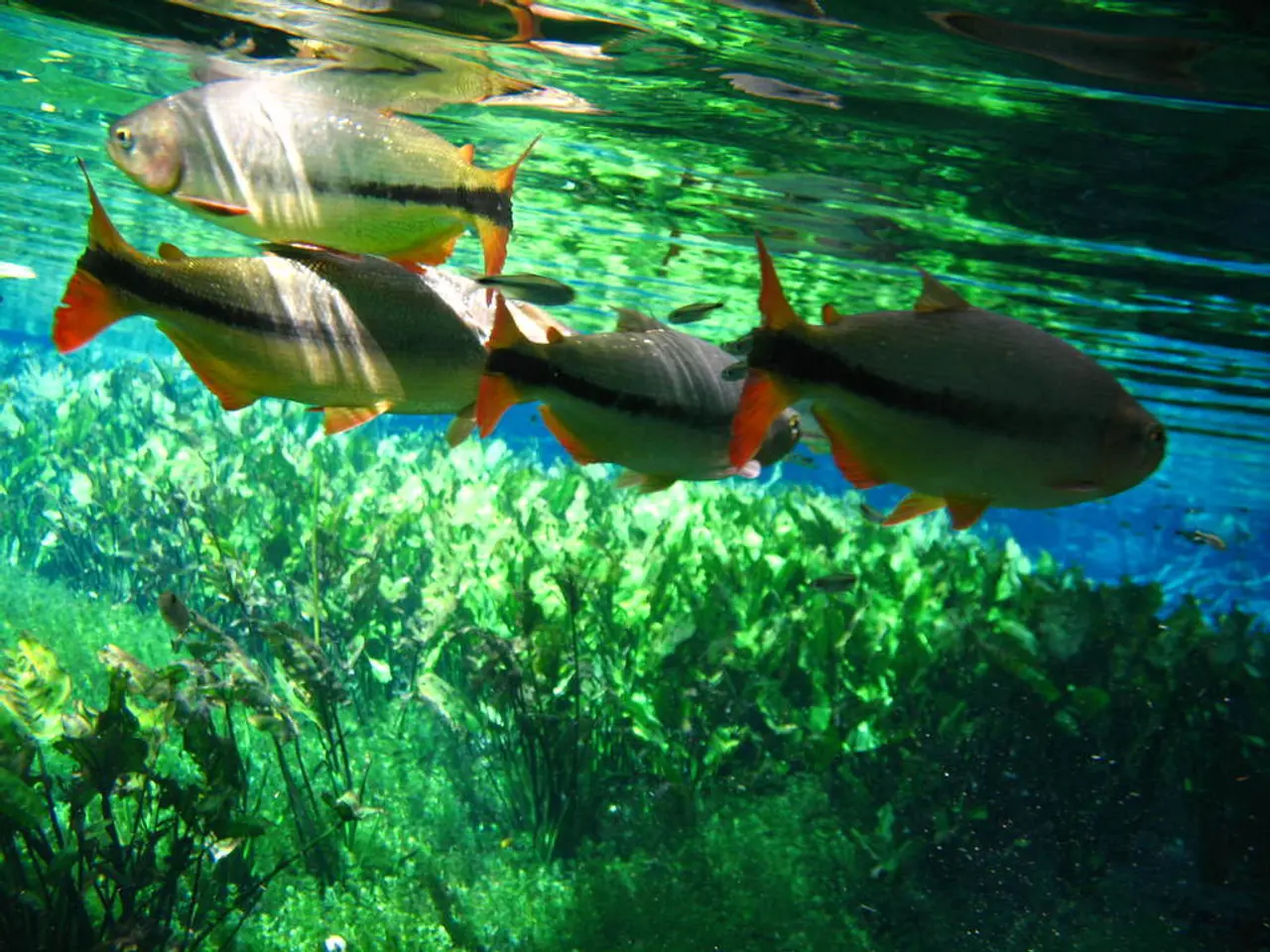Expanded Scholars Assist in Addressing Minnesota's Water-Related Issues via Sea Grant Program
Minnesota Sea Grant Science and Policy Fellowship Program Kicks Off, Boosting Water Resource Management
The Minnesota Sea Grant (MNSG) has announced the launch of its Science and Policy Fellowship Program, a one-year opportunity designed for early-career professionals in environmental science and public service. This initiative is part of a broader Sea Grant effort to build workforce capacity in these crucial areas.
The program, under award NA24OARX417C0033-T1-01, is modelled after the prestigious Knauss Fellowship Program. It aims to bridge the gap between scientific research and policy development in water resource management, placing fellows in host organizations across Minnesota. These organizations include state agencies, legislative committees, tribal agencies, and nonprofit organizations.
Reid Brown, a doctoral student in plant and microbial biology, will work with the Minnesota Department of Natural Resources, while Reane Loiselle-Kasun, another master's degree holder in water resources science, and Larissa Scott, a master's degree holder in the same field, will work with mentors from the Minnesota Department of Natural Resources and the St. Louis County Department of Public Works, respectively.
Key components of the fellowship include a focus on objective-driven projects, mentorship from experienced professionals, career development opportunities, and a wide range of host organizations. The program seeks to cultivate a workforce skilled in navigating the intersection of science and policy to address Minnesota's water resource challenges, such as improving water quality, mitigating severe weather impacts, and managing invasive species.
Fellows work closely with government agencies, such as the Minnesota Department of Natural Resources, to advance projects that balance ecological, economic, and community needs. By working within government agencies, fellows can contribute scientific insights to policy decisions, enhancing the effectiveness of water resource management strategies across the state.
The fellowships began on July 1, 2025, and will end on June 30, 2026. This program is supported by the Minnesota Sea Grant College Program, the Minnesota Environment and Natural Resources Trust Fund, and additional host support was provided by the St. Louis County Department of Public Works.
John A. Downing, Director of Minnesota Sea Grant, stated that the program connects emerging leaders with agencies tackling Minnesota's most urgent water challenges. Marie Thoms, Communications Director for Minnesota Sea Grant, added that the program is one of 34 federal-university Sea Grant partnerships across the country and is a systemwide program of the University of Minnesota.
For more information about the MNSG Science and Policy Fellowship Program, please contact John A. Downing, Director of Minnesota Sea Grant, or Alex Frie, Research and Fellowship Coordinator for Minnesota Sea Grant.
[1] Minnesota Sea Grant. (n.d.). MNSG Science and Policy Fellowship Program. Retrieved from https://seagrant.umn.edu/science-policy-fellowship
[3] Minnesota Sea Grant. (n.d.). Fellows. Retrieved from https://seagrant.umn.edu/science-policy-fellowship/fellows
[5] Minnesota Sea Grant. (n.d.). Host Organizations. Retrieved from https://seagrant.umn.edu/science-policy-fellowship/host-organizations
The Minnesota Sea Grant Science and Policy Fellowship Program, aimed at early-career professionals in environmental science and public service, is designed to promote education and self-development in water resource management in Minnesota. This fellowship program, which is part of a broader Sea Grant effort, bridges the gap between scientific research and policy development to address environmental-science challenges in the state.




